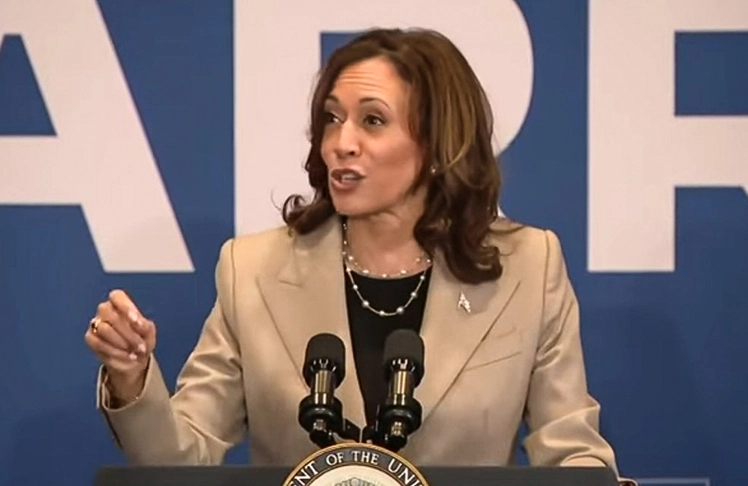
Oregon Democrats have rallied behind Vice President Kamala Harris as President Joe Biden withdrew from the presidential race on Sunday. Biden’s endorsement of Harris was quickly seconded by prominent Oregon Democrats, including U.S. Sen Ron Wyden, U.S. Reps. Suzanne Bonamici, and Val Hoyle.
The question now is whether these endorsements signal a national trend that will secure Harris’ nomination at the upcoming Democratic National Committee convention starting on August 19. Or will the outcome resemble the fragmented 1968 convention, which nominated Vice President Hubert Humphrey, leading to his defeat against Republican Richard Nixon?
Not all Oregon Democrats immediately endorsed Harris. Notable figures such as U.S. Sen. Jeff Merkley, Gov. Kate Brown, and U.S. Rep. Andrea Salinas, representing the Second Congressional District, did not join the endorsements.
Harris has expressed her intention to pursue the nomination but has yet to announce her running mate. While no immediate challengers have emerged, some Democrats, including former U.S. House Speaker Nancy Pelosi, have advocated for an open primary, reminiscent of the 1968 convention.
Despite Biden’s endorsements, delegates now have the freedom to choose their own presidential nominee and vice presidential running mate.
Drawing parallels between the present situation and 1968, there are both striking similarities and differences. In 1968, President Lyndon Johnson’s unexpected decision not to seek re-election due to opposition to the Vietnam War created uncertainty within the party. Senator Eugene McCarthy and Robert Kennedy engaged in a fierce battle until Kennedy’s assassination in California. Humphrey emerged as a compromise candidate, backed by moderates and party leaders.
The upcoming Democratic National Convention will be held in Chicago, mirroring the location of the 1968 convention. Humphrey’s nomination was accompanied by protests, similar to the current demonstrations organized by pro-Palestinian activists and others. Humphrey ultimately lost to Nixon by a narrow margin, with far-right candidate George Wallace securing a significant portion of the vote. In contrast to 1968, the Republican convention this year was more organized, emphasizing a law-and-order platform in response to ongoing protests. Additionally, in a notable difference, the Republican candidate faced an assassination attempt on July 13, potentially impacting his electability.
Following Biden’s withdrawal, Oregon Democratic officeholders praised his decision, citing his disappointing debate performance against Trump on June 27 and subsequent struggles to revitalize his campaign. While only a few swiftly supported Biden’s endorsement of Harris as his replacement, Senator Ron Wyden expressed his full support for Harris, emphasizing her impressive record and the importance of defeating Donald Trump.
As the Democratic National Convention approaches, the spotlight will be on Vice President Kamala Harris and the outcome of the nomination process, which will shape the party’s path towards the general election.















